Can You Hear Them? Children Demand Justice—Will We Act?
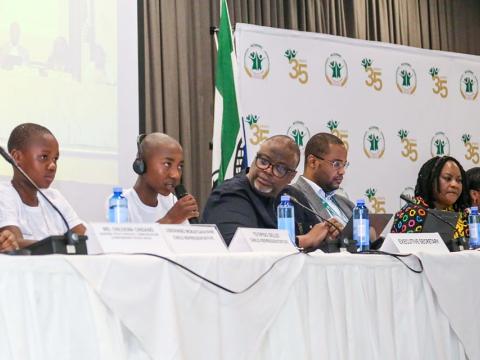
By: Lerato Brown, Communications and Marketing Manager, Lesotho
Elevating Children’s Voices for Change Across Africa
Across Africa, the rights and welfare of children are safeguarded by a landmark legal instrument: the African Charter on the Rights and Welfare of the Child (ACRWC) adopted in 1990 and entering into force in 1999. This groundbreaking regional treaty was developed to reflect the unique realities African children face, from harmful cultural practices and poverty to armed conflict and exploitation.
Crucially, the Charter goes beyond protection, affirming the importance of family, cultural values, and most significantly, child participation in creating a safe, inclusive, and nurturing environment for every child to thrive. To oversee its implementation, the African Committee of Experts on the Rights and Welfare of the Child (ACERWC) was established and this Committee plays a vital role in monitoring progress, encouraging state accountability, and ensuring the voices of children are not only heard but acted upon.
At the Heart of Advocacy: Children as Change Agents
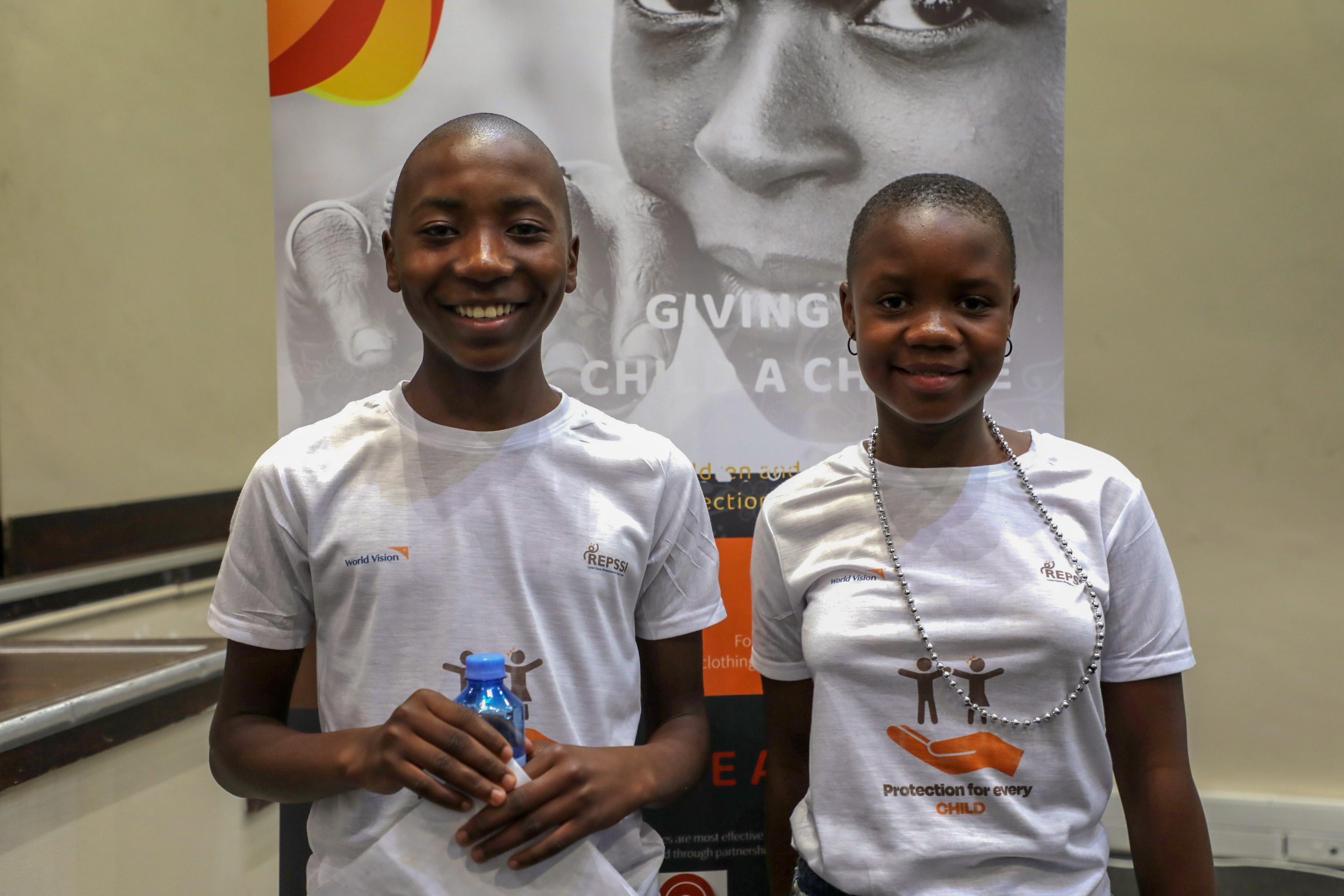
At World Vision, we don’t just see children and youth as recipients of change, we see them as powerful agents of change. Their lived experiences, ideas, and leadership are essential to building a just, peaceful, and inclusive world. That’s why we embed child participation at every level of our programming and advocacy, ensuring children are meaningfully involved in decisions that shape their lives and futures.
This commitment was recently brought to life at the 45th Ordinary Session of the ACERWC, where two young advocates from Lesotho, Lebohang (12) and Tsepiso (15), stood boldly before the Committee to deliver powerful appeals on behalf of children across the continent calling for an end to child sexual exploitation and abuse.
“Together, We Can Stop Abuse!”
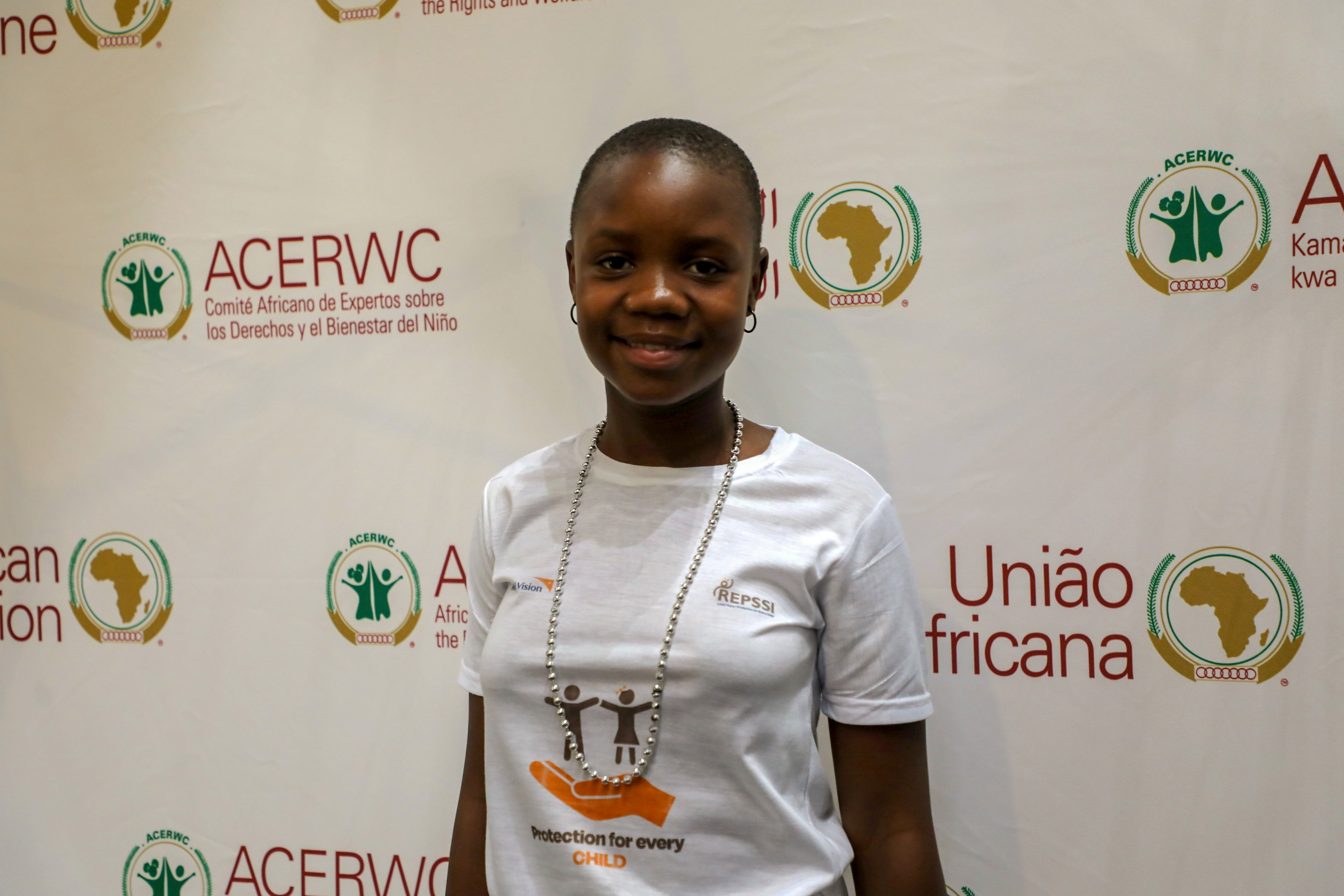
With grace and courage, Lebohang spoke truth to power before heads of state, national human rights institutions, and international development partners:
She called for stronger laws, harsher penalties for perpetrators, and deeper collaboration between governments, civil society, and communities. Her advocacy also highlighted the need for comprehensive sexual education, mental health support, and inclusive interventions that reach children with disabilities ensuring no child is left behind.
Lebohang’s words brought to life the spirit of the ACRWC, which emphasizes holistic care for a child’s physical, mental, moral, and social development, and the right to grow up in love, dignity, and security.
“Stop Defiling Our Girls. We Want to Live.”
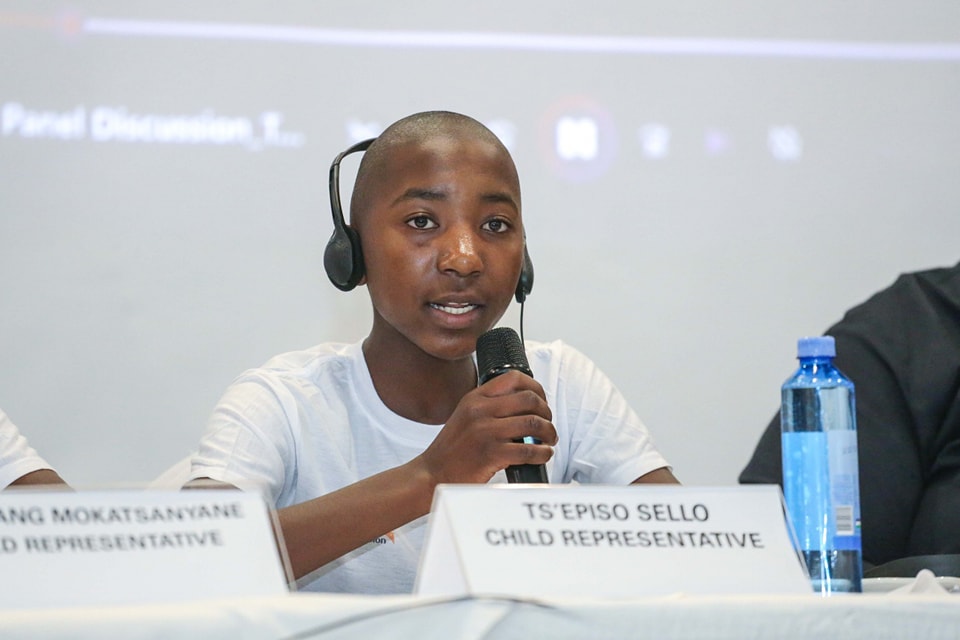
Tsepiso’s words struck a deep chord, reminding everyone that behind policy debates are real children suffering in silence.
His plea was clear: address the root causes of violence, strengthen child protection systems, and hold perpetrators accountable. His testimony aligned powerfully with the Charter’s call to protect children from all forms of abuse and harmful practices, especially those that rob them of their innocence, safety, and dreams.
🧡 Why Child Participation Matters
World Vision’s child and youth participation approach is grounded in both the United Nations Convention on the Rights of the Child (UNCRC) and the ACRWC, which affirm that every child has the right to express themselves freely and to be taken seriously.
We prioritize meaningful, safe, and age-appropriate participation because it:
Builds self-confidence, leadership, and civic responsibility.
Enhances the effectiveness and impact of child-focused programs.
Promotes inclusive development and ensures accountability to the very children policies are meant to serve.
Building Young Advocates: Our Programming in Action
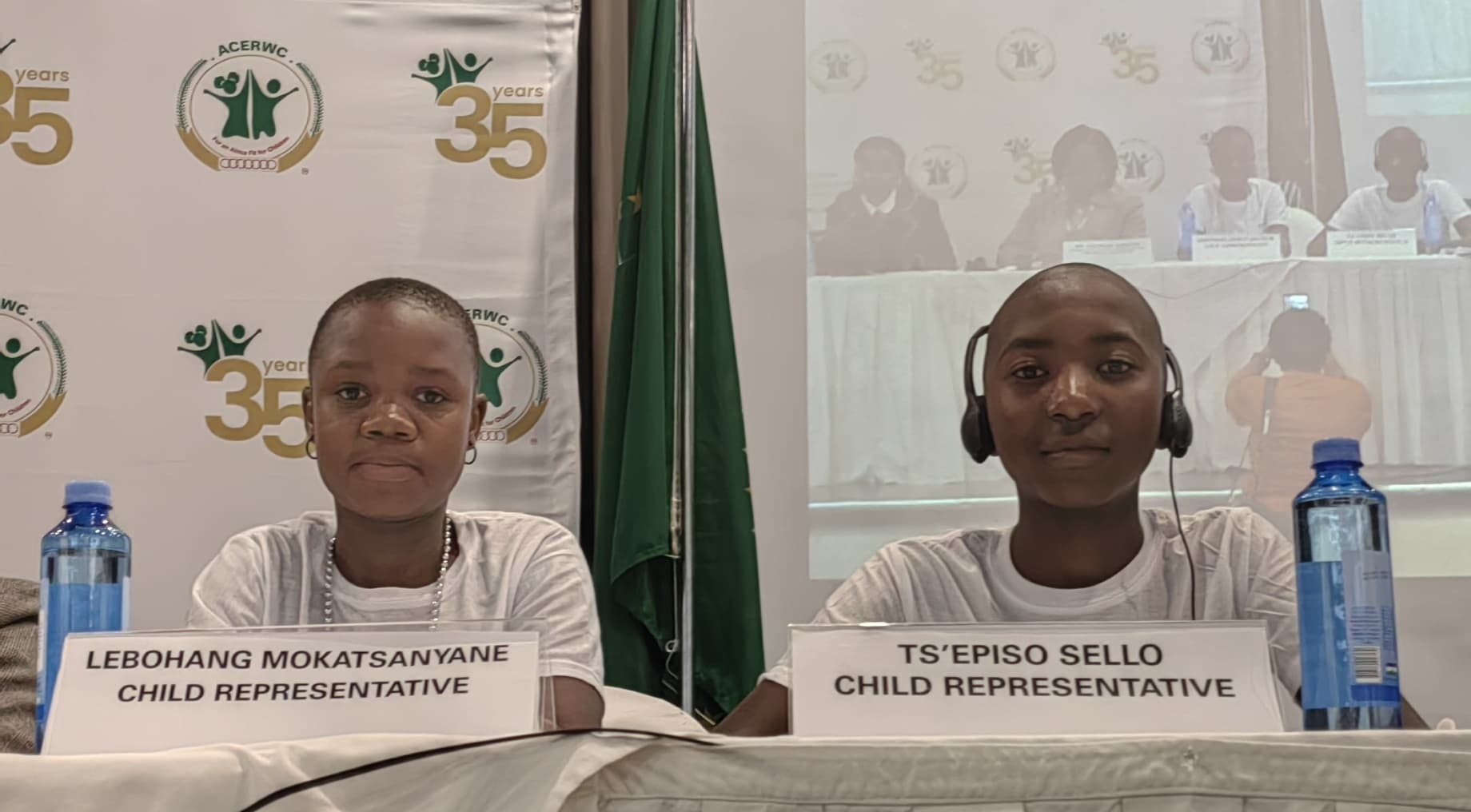
Through our child-focused programming, we empower children and young people to become changemakers, advocates, and leaders through approaches such as:
Young Leaders for Change: equipping youth to influence global networks and drive systemic change.
Child-led Mobilisation: supporting children to lead local movements, raise awareness, and influence policy from the ground up.
Digital Storytelling: providing tools and platforms for children to share their stories, reach wider audiences, and challenge the status quo.
Our engagement at ACERWC reflects this approach in action, amplifying children’s voices on a continental stage where laws are shaped, and commitments are made.
This impactful participation was made possible through the partnership between World Vision Lesotho and REPSSI (Regional Psychosocial Support Initiative), whose shared goal is to build children’s confidence, capacity, and courage to advocate for their own rights.
A Platform That Puts Children First
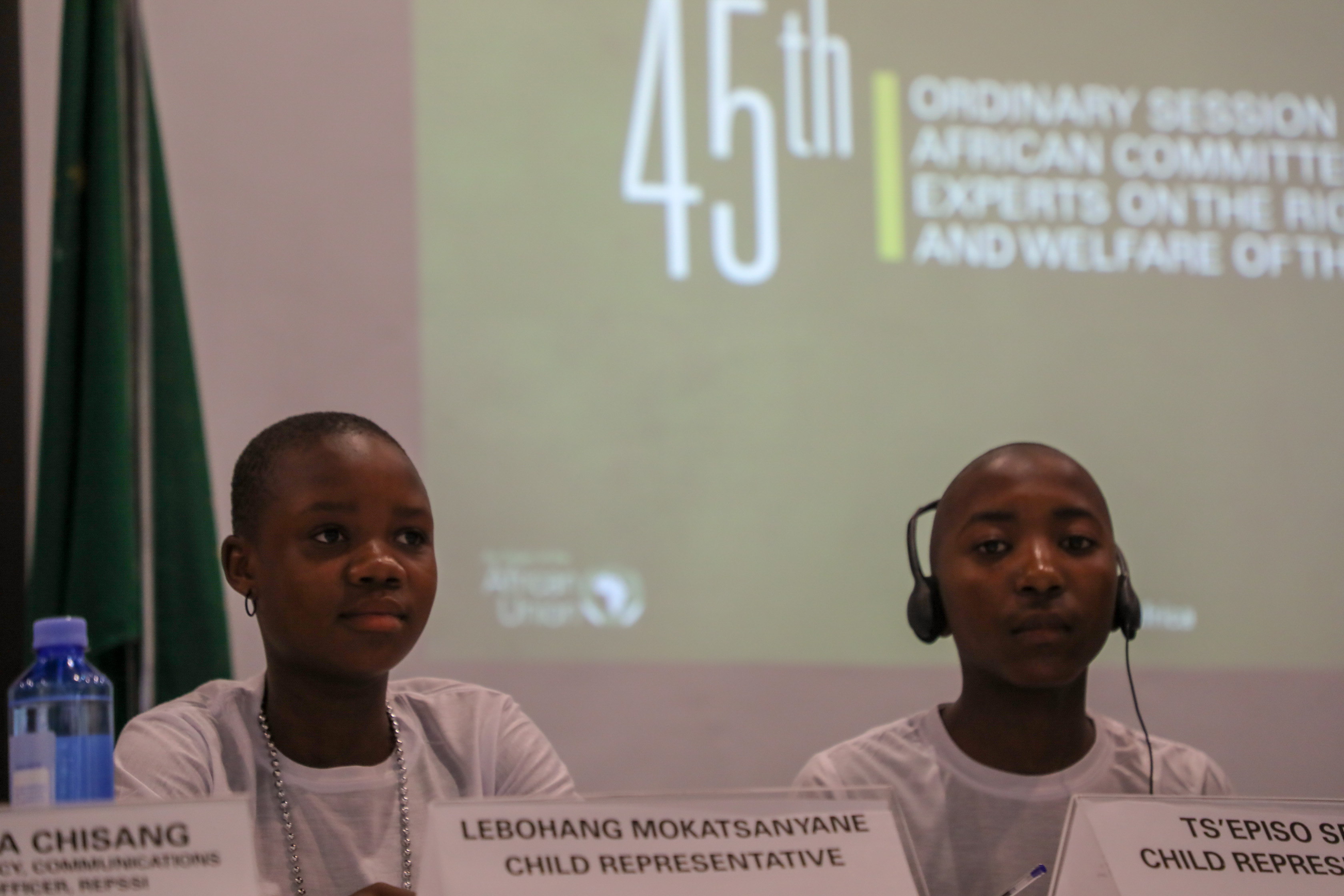
World Vision extends sincere appreciation to the ACERWC for creating this space not as a formality, but as a transformative platform where children can engage directly with duty bearers. These opportunities are essential in holding governments and institutions accountable to the very children they are meant to protect. “When children speak, the world must listen.”
World Vision remains steadfast in walking alongside children as they raise their voices, advocate for change, and shape the world they want to live in. But we cannot do this alone. We call upon governments, civil society, development partners, families, communities, and faith leaders to rise in solidarity with children and commit to:
- Protecting children from violence and abuse.
- Creating inclusive, child-friendly spaces for participation.
- Investing in child-led advocacy and leadership development.
- Ending child sexual exploitation and abuse once and for all.
Because a better future for Africa starts with listening to its children and acting on what they say.